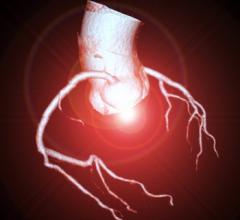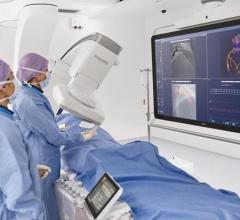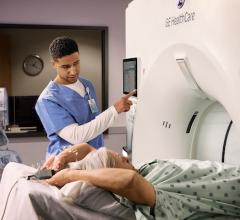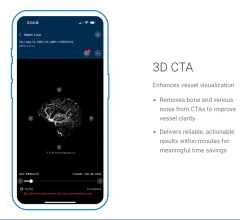
October 26, 2017 — Corindus Vascular Robotics Inc. announced that it will incorporate the HeartFlow FFRct (fractional flow reserve-computed tomography) Analysis in a case series of robotic-assisted percutaneous coronary intervention (PCI) procedures with the CorPath GRX System to evaluate the feasibility and utility of clinical decision support.
The case series will be conducted by Steven Almany, M.D., at Beaumont Hospital - Troy, in Troy, Mich., and Srini Potluri, M.D. at The Heart Hospital Baylor Plano in Plano, Texas. An initial visit has already been conducted at both sites. A demonstration model will also be available to view in the Corindus booth at the Transcatheter Cardiovascular Therapeutics (TCT) 2017 conference from Oct. 30-Nov. 1. TCT 2017 runs from Oct. 29-Nov. 2 in Denver.
"The objective of this case series is to demonstrate how the integration of multiple cutting-edge technologies can potentially improve patient outcomes," said Potluri. "Incorporating the HeartFlow FFRct Analysis into CorPath’s interventional cockpit combines an advanced pre-procedure planning tool with robotic precision to bring a new standard of care to patients."
CorPath GRX is the company’s second-generation robotic-assisted PCI technology, bringing robotic precision to interventional procedures to help optimize clinical outcomes and minimize the costs associated with complications of improper stent placement. With independent and simultaneous robotic control of guide catheters, guidewires, and balloon/stent catheters, physicians have the capability to perform a range of procedures, including complex cases, from the cockpit.
The HeartFlow FFRct Analysis is a non-invasive technology that provides insight into both the extent of coronary artery disease and the impact of the disease on blood flow to the heart. Data from a patient’s non-invasive coronary CT angiogram is securely uploaded from a hospital’s system to the cloud. Following this data transfer, HeartFlow leverages deep learning to create a personalized digital 3-D model of the patient’s coronary arteries. It then uses powerful computer algorithms to solve millions of complex equations to simulate blood flow and assess the impact of blockages on coronary blood flow. The HeartFlow FFRct Analysis is provided via a secure web interface to the patient’s physician, who uses the information to design a definitive, personalized treatment plan.
"We expect the results of this case series to impact how we approach future patient care," added Almany. "Adopting new and advanced tools to support procedure decision making has the potential to improve patient outcomes now and shift our thinking toward a high-tech cardiovascular care model for the future."
For more information: www.corindus.com, www.heartflow.com

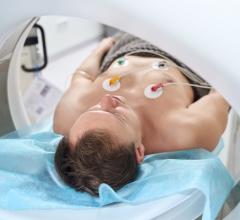
 February 06, 2026
February 06, 2026 


